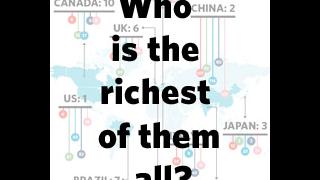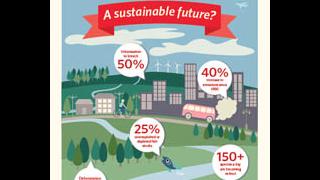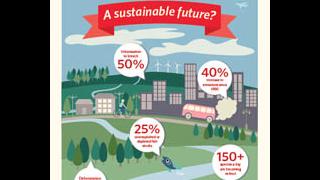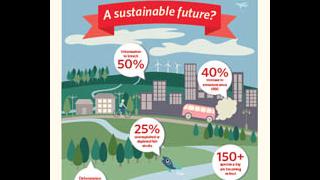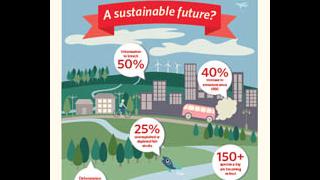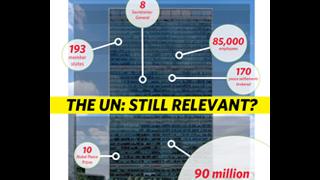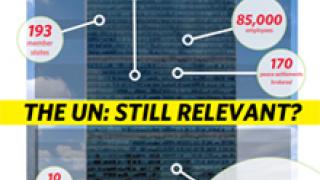
Clandestine activities, assassinations, computer viruses and explosions - while this could be the headline for Hollywood’s next spy thriller, perhaps entitled ‘Who’s Got the Bomb,? Pt. 5’, in reality it’s a description of recent events unfolding in Iran. The US, along with other Western countries, is demanding that Iran halts its nuclear activities now, before it is able to make a nuclear weapon. Iran on the other hand is insisting that the scope of their nuclear development is peaceful and is charging the US and Israel with conducting a covert war in which they are killing nuclear scientists, causing explosions at military facilities, and with introducing the Stuxnet computer virus at the Natanz uranium enrichment facilities.
Both countries are now undertaking military exercises in the Strait of Hormuz following threats by Iran to close the vital shipping route. As tensions escalate and rhetoric becomes increasingly hostile, many are concerned that the US or Israel will pre-emptively strike the country. The US has made its position clear - a nuclear Iran is a red line that cannot be crossed - but what does a nuclear programme mean to Iran and the other countries involved?
View from Tehran
To the Iranians, the bomb is a source of pride. They believe it is necessary to deter foreign forces intent on toppling the Islamic regime. Iran has come away from the past 11 years with a powerful lesson - Iraq and Libya, both nations with unfulfilled nuclear ambitions were toppled by Western forces, whereas the North Korean leadership has remained in power, in part thanks to its nuclear deterrent. It is for this reason that the government is playing a dangerous game of chicken, leaving the world to question its intentions. The fact remains, however, that Iran does not have the bomb and even the most pessimistic forecasts predict it will take at least another year before one is developed.
Even with this in mind, the bulk of the new information published by the International Atomic Energy Agency (IAEA) relates to experiments and research undertaken towards weapon development. While they are rightly concerned about the lack of transparency of the regime, they have confirmed that no enriched uranium has been diverted. Given that the nuclear programme was restarted in the 1990s it is likely that Iran wants the capability as a deterrent but unless they are under imminent threat they will stop short of actually developing the bomb. Not having nuclear capabilities makes sense strategically and economically, as a nuclear programme is very expensive to run and maintain.
With upcoming domestic elections looming in the spring, the hard-line conservative Grand Ayatollah Ali Khamenei is concerned about maintaining the legitimacy of his power. The Ayatollah’s credibility was seriously undermined in 2009 after he declared it a crime to challenge the widely contested results of the elections that kept Mahmoud Ahmadinejad in power. Now the state has instigated repressive policies to ensure that widespread protests will not be repeated. The latest round of increasingly severe economic sanctions - intended to block Iran’s access to the global financial system and strangle its oil and gas industry - are likely to cause more dissent among the populace as food becomes harder to buy.
According to the Centre for Strategic and International Studies, despite fears about the economy, the majority of people support a nuclear programme and feel it is their right to pursue nuclear power. It is therefore in the interest of Tehran to ignore Western demands. Another way to gain favourable support and loosen economic strain is to force the price of oil to increase by threatening to close the Strait of Hormuz, one of the world’s busiest shipping routes.
Despite denials, Iran continues to enrich uranium up to 20 percent and has moved enrichment capabilities to the Fordo plant in Qom, a heavily fortified facility within a mountain which is nearly impossible to strike effectively. This could be a sign of the country’s intentions to develop a bomb, or it could be an insurance policy. Uranium becomes exponentially easier to enrich once the 20 percent level is reached. Coupled with an increase in the number of centrifuges, the country is capable of stockpiling enriched fuel faster, while protecting it underground.
International Pressures
The general international consensus is that Iran’s nuclear programme should be stopped, although how to go about achieving that remains a contentious issue. Views on how to halt the increasingly ‘rogue’ nation range from the most aggressive – Israel, which is calling for military strikes - to China and Russia, who oppose more economic sanctions.
Regional and theological rival Saudi Arabia (the kingdom is Sunni while Iran is predominantly Shia) is nervously assessing a new power structure across the Middle East, following the Arab Spring revolutions. Used to cash-heavy diplomacy, the American ally has promised to make up any shortfall in oil production resulting from economic sanctions on Iran, OPEC’s second-largest producer. Once a member of the pro-engagement of Israel pact with the US, Jordan and Egypt, Saudi Arabia is now feeling vulnerable and concerned that Iran could extend its nuclear umbrella to enemies of the monarchy, such as Hezbollah and Hamas.
Russia and China have both spoken out against the prospect of a military strike, as well as what they view to be draconian sanctions. Both countries must toe the line between opposing what they feel is ‘American dominance’ and maintaining favourable economic ties. China, one of the largest importers of Iranian oil, is now seeking to bolster ties with Gulf States in order to reduce its reliance on Iranian oil (although economic factors – i.e. cheaper prices – are likely to have played a bigger role in this decision than political factors). Russia, one of the main arms dealers to Iran, also helped to build the Bushehr nuclear reactor. The loss of both clients would be a major hit to the Iranian economic and political infrastructure.
The American government views a nuclear-armed Iran, particularly one that is hostile to the West, as a Pandora’s box - once achieved it could unleash any number of doomsday scenarios in one of the most volatile regions in the world. American interests are concerned with preventing proliferation in the region, particularly as it could, theoretically, lead to acquisition of nuclear material by terrorist organisations. Armageddon-like imagery is rife in the media and perhaps most alarming of all is the prospect of state-sponsored acquisition of nuclear weapons by, for example, Hezbollah or Hamas. The existential threat posed to Israel is often used as a reason to attack. While Ahmadinejad did say that Israel must be ‘wiped off the map’, an attack on one of America’s closest allies would be suicidal.
Is military intervention likely?
President Obama is under immense domestic pressure in this election year. He must not look weak and be seen to compromise with Iran but on the other hand the public is unlikely to support another war, particularly not in the Middle East. An attack would cause a series of potentially catastrophic consequences. Firstly, a strike would almost certainly result in another protracted ground war, as happened in Iraq and Afghanistan. It would increase the risk to American personnel and interests around the world. The fragile global economy would suffer under spiking oil prices, one of the most powerful bargaining tools at Iran’s disposal. Ultimately, a military strike would quicken that which the US is trying so hard to prevent. It would intensify anti-western sentiment, bolster terrorist recruitment and strengthen Iran’s resolve to establish a nuclear-weapon capacity.
The good news is that under the current status quo it is unlikely that an attack will happen any time soon, at least not while both countries are in a state of flux. There are currently IAEA inspectors monitoring the situation in Iran and until they withdraw or are kicked out, an attack that would risk the safety of UN agents is politically impossible. The outcomes of both elections will be vital to the international peace and stability. The bad news of course, is that a lot can happen in a year.
Gabrielle Becking is a Peace and Security Programme intern at UNA-UK.






